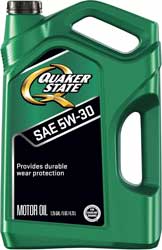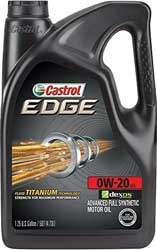When it comes to the care and maintenance of your vehicle’s engine, choosing the right oil is crucial. Among the available options, synthetic and mineral oils are the most common, but what are the main differences between them? Understanding these differences will not only help you make an informed decision but can also extend the life of your engine and optimize its performance.
The choice between synthetic and mineral oil depends on several factors, including usage conditions, the type of vehicle, and your personal preferences. While mineral oil is a more traditional option derived from crude oil, synthetic oil results from sophisticated chemical processes that enhance its consistency and performance. This manufacturing difference translates into specific advantages and disadvantages for each type of oil.

Publication contents:
What are the main differences between synthetic and mineral oil?
When we talk about synthetic motor oil, it’s essential to understand how it differs from mineral oil. Both lubricate and protect the engine, but they do so in different ways. Synthetic oil, for example, is manufactured through advanced chemical processes that allow greater control over its properties and performance. This results in greater stability at high temperatures and better protection against engine wear.
Recommended Synthetic Oil
On the other hand, mineral oil is derived from crude oil and, although effective, lacks the same molecular consistency. This difference reflects in its performance, especially in extreme conditions. Synthetic oil offers better resistance to oxidation and aging, allowing for longer oil change intervals. Imagine not having to worry so much about engine maintenance!
Additionally, synthetic motor oil is less volatile, meaning it burns less at high temperatures, reducing oil consumption. In contrast, mineral oil can evaporate more easily, leading to higher consumption and the need for more frequent refills. So, if you value efficiency and long-term savings, synthetic oil is an option to seriously consider.
Another key difference lies in performance at low temperatures. Synthetic oil maintains its fluidity in cold climates, ensuring rapid engine lubrication upon starting. However, mineral oil can thicken and take longer to reach all parts of the engine, potentially increasing wear during start-up. Who doesn’t want smoother starts and less wear in winter?
Performance Comparison: Synthetic Oil vs. Mineral Oil
Analyzing the performance of synthetic motor oil versus mineral oil reveals that each has its strengths and weaknesses. Lab-designed synthetic oil presents a more uniform composition, resulting in superior performance. Its ability to maintain viscosity over a wide range of temperatures is crucial for engine protection.
As a natural petroleum derivative, mineral oil lacks the same consistency. This can affect its performance under extreme conditions, such as high or low temperatures. While synthetic oil provides more effective lubrication at high temperatures, mineral oil can start to break down and lose effectiveness.
Synthetic motor oil’s resistance to oxidation presents another advantage. It lasts longer without breaking down, allowing for longer change intervals. In comparison, mineral oil oxidizes more quickly, requiring more frequent changes. This factor can significantly influence vehicle maintenance costs and convenience.
Engine cleanliness is another aspect where synthetic oil excels. Thanks to its chemical properties, it is less prone to forming deposits and sludge in the engine. This keeps the engine cleaner and more efficient. While effective, mineral oil can leave more residues, potentially affecting long-term performance.
In terms of protection, synthetic oil offers a better barrier against wear. This is especially important for high-performance engines or those operating under severe conditions. Although mineral oil provides adequate protection, it does not offer the same level of protection under extreme stress.
So, if you want to maximize your engine’s performance and lifespan, synthetic motor oil is the preferred option. Though it may be more expensive, its long-term benefits in terms of maintenance and engine protection make it a smart investment for many drivers.
What Benefits Does Synthetic Motor Oil Offer?
Synthetic motor oil has become a popular choice for many drivers, and it’s easy to see why. This type of oil offers a range of benefits that can improve both engine performance and the driving experience. One of the biggest benefits is its stability at high temperatures. Unlike mineral oil, synthetic oil maintains its viscosity, providing consistent lubrication and protecting the engine even under extreme conditions.
Another notable benefit is the reduction in oil consumption. Synthetic motor oil is less volatile, meaning it burns less and, therefore, doesn’t need to be topped off as often. This is not only convenient but can also mean long-term savings. Additionally, its resistance to oxidation allows for longer oil change intervals, resulting in fewer trips to the mechanic and less disruption to your routine.
Engine cleanliness is another plus. Due to its advanced chemical properties, synthetic oil tends to form fewer deposits and sludge in the engine, keeping it cleaner and more efficient. This is especially beneficial for modern and high-performance engines, which require precise and effective lubrication to operate optimally.
Cold starts are another area where synthetic oil shines. Its ability to remain fluid at low temperatures ensures that the engine receives quick and effective lubrication upon startup, reducing initial wear and improving engine longevity. This is particularly useful in cold climates, where mineral oil can thicken and take longer to circulate properly.
Additionally, synthetic motor oil offers better protection against wear and friction. This is crucial for engine longevity, especially in high-performance vehicles or those operating under severe conditions. With all these benefits, it’s no surprise that more and more drivers choose synthetic oil to keep their engines in the best possible condition.
Impact of Synthetic Oil on Engine Lifespan
Synthetic motor oil significantly impacts engine lifespan and deserves attention. One of its main advantages is its ability to maintain stability and viscosity at high temperatures. This means it provides constant and effective lubrication, reducing wear and protecting critical engine parts. Who wouldn’t want a longer-lasting, better-performing engine?
Additionally, synthetic oil is less prone to oxidation and degradation over time. This allows for longer oil change intervals, which is not only convenient but also reduces residue and deposit buildup in the engine. A cleaner engine runs more efficiently and has an extended lifespan.
Another key advantage is synthetic motor oil’s ability to flow at low temperatures. This ensures all engine parts receive quick and effective lubrication upon startup, especially in cold climates. By reducing startup wear, engine longevity improves significantly. Can you imagine not having to worry about additional wear on those cold winter days?
Resistance to evaporation is another important characteristic of synthetic oil. Being less volatile, synthetic oil doesn’t burn as quickly as mineral oil, reducing the need for frequent top-offs and maintaining the proper oil level in the engine. This not only improves engine efficiency but also helps extend its lifespan.
Why choose synthetic oil over mineral oil?
Choosing between synthetic motor oil and mineral oil can be a crucial decision for the care of your vehicle. Synthetic oil, produced through advanced chemical processes, offers several significant advantages over mineral oil. One of the main benefits is its stability at high temperatures, which provides consistent and effective lubrication. This feature is especially important for engines that operate under severe conditions.
Synthetic motor oil also has lower volatility, meaning it burns off less at high temperatures and reduces the need for frequent top-ups. This can translate into long-term savings and greater convenience for drivers. Additionally, its resistance to oxidation allows for longer oil change intervals, reducing visits to the workshop and engine maintenance.
Recommended Synthetic Oil
Another aspect to consider is engine cleanliness. Synthetic oil tends to form fewer deposits and sludge, keeping the engine cleaner and more efficient. This is crucial for modern, high-performance engines that require precise lubrication. Mineral oil, although effective, does not provide the same level of protection against residue formation.
In cold climates, synthetic motor oil maintains its flow, ensuring rapid engine lubrication upon startup. This reduces initial wear and improves engine lifespan. Mineral oil, on the other hand, can thicken at low temperatures, potentially causing increased wear during startup.
Choosing the right oil can make a big difference in your engine’s performance and longevity. With all the advantages of synthetic oil
Fuel Savings with Synthetic Oil: Myth or Reality
Fuel savings remain a constant concern for many drivers, and one common question is whether using synthetic motor oil truly contributes to these savings. The answer is not a simple yes or no, but synthetic motor oil offers several benefits that can positively impact fuel consumption.
First, the formulation of synthetic oil enables better engine efficiency. Due to its lower internal friction, the engine operates more smoothly and efficiently, which can reduce fuel consumption. This translates into less resistance for the engine’s moving parts, allowing them to operate more freely and use less energy. Who doesn’t want an engine that works less and consumes less fuel?
Additionally, synthetic oil maintains its viscosity and performance across a wide range of temperatures, which is crucial for engine efficiency. In extreme temperatures, whether high or low, synthetic oil ensures that the engine receives optimal lubrication from the moment of startup. This not only protects the engine but can also improve fuel economy by reducing energy loss from unnecessary friction.
Another aspect to consider is engine cleanliness. Synthetic motor oil tends to keep the engine cleaner by preventing the formation of deposits and sludge. A clean engine operates more efficiently, which can lead to improved fuel consumption. Residue buildup in the engine can increase friction and reduce efficiency, resulting in higher fuel consumption.
Therefore, while the impact of synthetic oil on fuel savings may not be drastic in every case, its cumulative benefits in terms of efficiency, protection, and engine cleanliness can contribute to better fuel economy. So, if you are looking to optimize your vehicle’s performance and potentially save on fuel, considering synthetic motor oil is a smart decision.
How Does Temperature Affect Synthetic Oil Performance?
Temperature plays a crucial role in synthetic motor oil performance, and it is important to understand how it affects its effectiveness. One of the main advantages of synthetic oil is its ability to maintain a stable viscosity across a wide temperature range. Unlike mineral oil, synthetic oil does not thicken excessively in the cold or thin out too much in extreme heat. This stability ensures efficient engine lubrication regardless of weather conditions.
In cold climates, synthetic motor oil offers a significant advantage. Its formulation allows it to flow more easily at low temperatures, ensuring rapid engine lubrication upon startup. This is crucial because the engine experiences the most wear during startup, and oil that flows quickly can significantly reduce this wear. Additionally, at extremely low temperatures, synthetic oil does not solidify, ensuring that the engine always stays protected.
On the other hand, in high-temperature conditions, synthetic oil also excels. It maintains its viscosity and does not break down as quickly as mineral oil. This is especially important for engines that operate under heavy loads or in hot climates, where the oil must resist evaporation and oxidation. Synthetic oil’s ability to maintain its performance at high temperatures means it continuously provides protection against wear and friction, extending the engine’s lifespan.
Synthetic motor oil also has lower volatility, meaning it does not burn off as easily as mineral oil under high-temperature conditions. This reduces the need for frequent top-ups and keeps the lubrication level adequate at all times. An engine that operates at optimal temperatures with synthetic oil is not only more efficient but also better protected against potential damage.
In summary, synthetic oil’s ability to maintain stable viscosity and offer effective protection across a wide range of temperatures makes it a superior choice for many drivers. Whether in cold or hot climates, synthetic motor oil ensures that the engine operates optimally and remains well protected.










